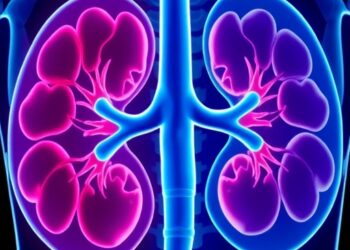Scientists have discovered that electrical currents may make Natural Killer (NK) cells – our very own cancer-killing immune cells – even better killers, which could have significant implications for treating some cancers.
Scientists have discovered that electrical currents may make Natural Killer (NK) cells – our very own cancer-killing immune cells – even better killers, which could have significant implications for treating some cancers.
The scientists found that Tumour Treating Fields (TTF) in the laboratory (which mimic exposure of brain tumours to electric currents via a simple hat worn by patients) evoked an even more deadly response from NK cells. They hope their promising findings may open the door to new combined therapies for people living with certain brain tumours, such as glioblastoma.
Glioblastoma is an aggressive, common brain cancer that has a very poor prognosis for survival. Treatment may involve surgery combined with chemotherapy and radiation therapy, but the cancer often returns. Consequently, new approaches are urgently required.
In the new study, which has just been published in leading journal Cell Reports Physical Science, the team of scientists explored whether TTF devices would impact the efficacy of NK cells, which are used as an immunotherapy to treat some cancers. The team was led by Prof. Clair Gardiner, Professor in Immunology in Trinity’s School of Biochemistry and Immunology, in collaboration with Prof. George Malliaras, an engineer in the University of Cambridge.
Prof. Gardiner, who is based in the Trinity Biomedical Sciences Institute, said: “Immunotherapies have improved outcomes for a large range of cancer types and offer significant potential for hard-to-treat cancers; however, it is likely that a combination of treatment approaches will ultimately be required for maximum impact on patient outcomes.
“Little is known about whether TTFs can be used successfully in combination with immunotherapies, or even if TTFs might stop immunotherapy from working completely. The findings here, however, are very promising as our work shows that they had minimal negative impact on the NK cells and seemed to make them even more effective as killers.”
Specifically, the team, found that exposure to TTFs did not impact NK cell viability or production of “cytokines”, which are key immunological molecules produced by NK cells. More exciting however was the finding that exposure increased NK cell degranulation, which is a sign of better NK cell killing.
The team now hopes to follow this work up with more in-depth studies, and Prof. Gardiner added: “More work is needed, but the data suggest that treatment using a combination of TTF and NK cells could be beneficial, and offer future potential for a new dual-modality treatment for patients with glioblastoma.”
Journal
Cell Reports Physical Science




